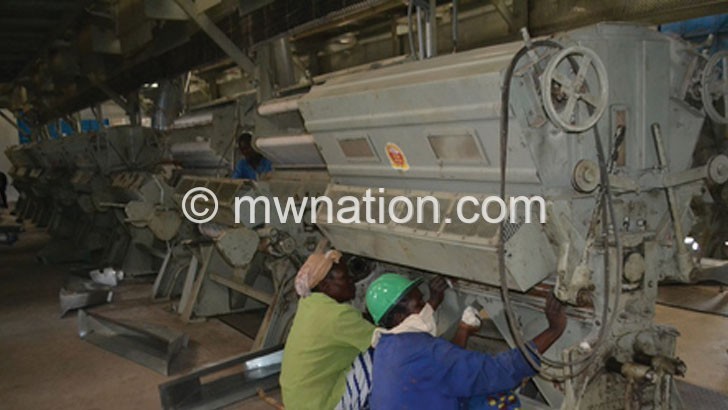MCCI outlines business risks
Malawi Confederation of Chambers of Commerce and Industry (MCCCI) says despite the feet monetary authorities have achieved on the macroeconomic front, inflation and the exchange rate risks remains major threats to the business environment.
MCCCI head of real sector and macroeconomic policy Hope Chavula said in an interview Wednesday that while lack of export growth threatens exchange rate gains, increase commodity prices also poses threats to inflation outlook.

“We recognise that authorities have managed to ensure a stable exchange rate for the past two years but lack of export growth outs to question regarding the sources of reserves and their sustainability. We thus would commend to government to priotise expenditure on areas that would support private sector growth and exports.”
He observed that higher interest rates and weak economic growth, political and climate risks and lack of fiscal consolidation, have continued to worsen business environment, limiting the growth of industry.
Last week, Reserve Bank of Malawi (RBM) maintained the policy rate at 13.5 percent but revised upwards annual inflation projection from eight percent to nine percent due to elevated maize prices which the central bank said was temporary and will likely unwind in the near term.
According to RBM, between April and June 2019, the local unit depreciated by 7.6 percent and traded at K785.2228 per dollar against healthy foreign exchange reserves, the depreciation was primarily driven by speculation amidst perceptions of lower export proceeds.
Catholic University head of economics department Hopkins Kawaye, while observing that policy rate has been on the lower side since November 2016, said there is need to still lower the lending rates if the country is to improve on investments.
“Since 2014, the economic growth of Malawi has been below 5 percent which is not good enough for a country like Malawi which has 51.5 percent of the population that is poor. Therefore, government should strive to sustain economic growth above 5 percent if it has to change the welfare of Malawian,” he said.
World Bank Malawi country economist Priscilla Kandoole said in the June 2019 Malawi Economic Report that government needs to develop an investment climate and sectoral regulatory frameworks that can attract higher-quality investors and investments, and facilitate the creation of better jobs in profitable, diverse sectors.
“Malawi needs to reduce the cost of doing business and level the playing field for SMEs that can drive job creation. Promoting predictability, transparency, and market contestability, particularly for local value addition, is key,” she said. n





